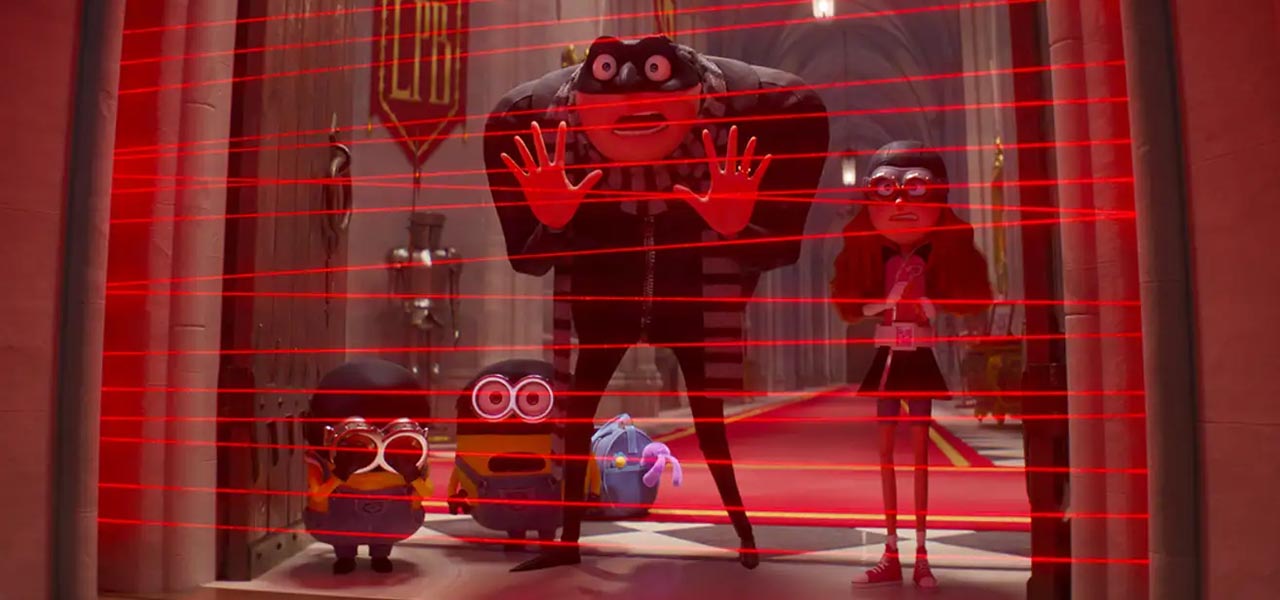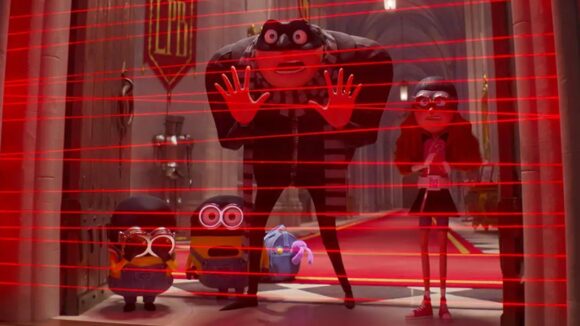

‘Despicable Me 4’ Reviews Roundup: Critics Hated It, Not That It Matters
A review roundup of a Despicable Me film seems almost pointless at this stage of the franchise’s history. Every new film in the series is reviewed worse than the last, and each one makes more money than the last.
Despicable Me 4, the first new film in the franchise in seven years (not counting the Minions spinoffs), is currently tracking critically at 53% on Rotten Tomatoes, which is the worst-ever critical reception in the series. The original Despicable Me garnered an 80%, DM2 was 75%, and DM3 at 58%.
Curiously though, even though each movie has been more poorly reviewed than the previous, each one has generated a bigger worldwide box office than the previous. While it’s still too early to say whether DM4 will continue the trend and outgross DM3’s franchise-best $1.03 billion, audiences have already given the film a thumbs up with a 90% audience score on Rotten Tomatoes.
Directed by Chris Renaud and co-directed by Patrick Delage, DM4 introduces a new nemesis – Maxime Le Mal (Will Ferrell) – who forces Gru and his family (including a new baby boy) into a witness protection program. The plot is besides the point though. As many critics have pointed out, the film is loosely episodic and filled with random comedic set pieces.
Also, it should be pointed out that nearly every negative review focuses on the lacking script and not the visuals, which are consistent to Illumination standards. Here’s a closer look at what critics are saying:
Kyle Smith in the Wall Street Journal offered some of the common criticisms about the film’s writing:
The heart of the Gru-niverse is slapstick and capers, but the balance is all off here. A disappointing script by Mike White (School of Rock, The White Lotus) and Ken Daurio, who co-wrote the first three entries, goes all-in on lame physical comedy. In hiding from their foe, Gru, Lucy and the little ones (kids, Minions) enter what amounts to a witness-protection program that means taking on fake identities in an upscale community. This generates misunderstandings with their neighbors that are boringly low-stakes when compared with the series’ usual world-altering plots, and the director, Chris Renaud, massively overestimates the comic value of getting the Minions (voiced by Pierre Coffin) stuck in a vending machine for a fourth or fifth time.
Gary Goldstein of the LA Times also took aim at the tedious, half-baked script:
Despicable Me 4 should come with a subtitle: “The Kitchen Sink.” That’s because this latest installment of Illumination’s mega-grossing animated franchise jams in a grab-bag of physical and visual gags and anything-goes action, plus a barrage of narrative dead ends, subplots and characters, as it strains to fill its 90 or so minutes of eye-popping, brain-draining mayhem. Despite a few chuckles, some capable voice work and plenty of splashy color, it proves a largely empty and exhausting ride.
Kate Erbland of Indiewire suggested that the story would have been better served in a series format:
[T]hese misadventures are starting to run dry from a creative standpoint. At least in the cinematic sense. There are still stories to tell in the world of Felonious Gru (super-villain turned genuinely nice guy), but at this point, there’s far too many of them. Overstuffed with characters, storylines, and kid-friendly gags, Chris Renaud’s latest film makes a strong — if accidental — case that it’s high time we turn Despicable Me and Minions into, gasp, a TV series. Despicable Me 4 already feels like six episodes of just such a show, crammed into a single unwieldy, disconnected, and oddly episodic outing.
Leigh Monson at AV Club offered one of the most bitter takes and argued that the people who made the film have become creatively complacent:
It’s hard not to approach reviewing Despicable Me 4 with anything other than a sense of futility. Illumination Studios seems to have cracked the code for mainstream blockbuster success, not by being any good, but by being merely “Good Enough.” Good Enough distracts even the shortest attention spans. Good Enough keeps parents from feeling alienated by their kids’ tastes. Good Enough is a yellow Minions bucket hat that makes you feel in on the fun while the theater reacts to cartoon slapstick with deathly silence. Good Enough is a few bland chuckles uttered in a vacuous 90 minutes you struggle to remember even as the credits start to roll. Good Enough is a black hole, of which Despicable Me 4 is the singularity. I, for one, am really, really sick of Good Enough.
Odie Henderson’s review in The Boston Globe is representative of the 47% of critics who gave the movie a thumbs up, though even he conceded that the franchise may have run out of gas:
If you hate the Minions, you’ll stay home. If you hate the Minions, and you have kids, you’ll have to see their movie anyway — multiple times. … As much as I enjoyed Despicable Me 4, I must concede that it’s time for the Minions to retire. But if we still have an inhabitable world in 2025, there will very likely be a Despicable Me 5.
Did the critics get it right? Or do audiences know something that critics don’t? If you’ve seen the film, share your thoughts in the comments below.
